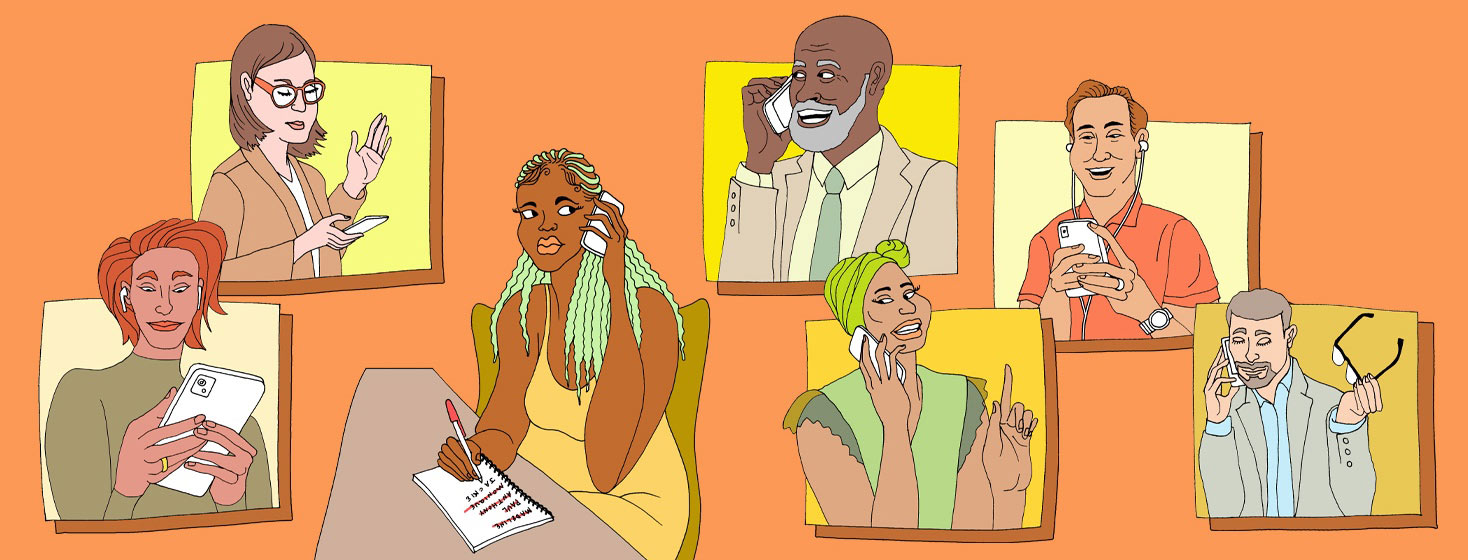Tips for Interviewing Therapists
“It is not a good feeling to feel as if you are trapped with your thoughts and your mind is racing. Finding an outlet to communicate these emotions will help significantly… I ask anyone who is reading this to work hard to take care of your mental health; please don’t put it off.”
- Davina Connor, Take Care of Your Mental Health
Finding the right mental health therapist can be challenging for anyone, but for people living with HIV (PLWHIV), it is important to find someone who understands the stress of diagnosis, treatment, and stigma.
When talking to a potential therapist, consider the insight from these advocates:
They are open to your questions
“By asking your doctor to share their story, you humanize them and you learn more about their background, training, and passion. Finding a good doctor is as much about skills as chemistry.” - Quincy Greene, Ask Your HIV Specialists the Following Questions
Experts recommend you avoid spending too much time searching the internet for the perfect therapist. Many therapists offer a free consultation on the phone where you can get a sense of how you connect.1
Your questions might include:1
- What is your experience working with PLWHIV?
- What types of therapy do you practice?
- What is your approach to processing trauma?
- Do you take my insurance? Do you offer a sliding scale?
They recognize that living with HIV can impact mental health
“I see HIV as more of a mental health illness than a physical. The stigma I was facing, the shame I put on myself, the thoughts that were going through my head when I went to get the results… for me HIV and mental health go hand in hand. That’s not everyone’s journey, but that’s my journey that I overcame.” - Jahlove Serrano, Minutes with Jah: Mental Health and HIV
Those with a severe mental illness are more likely to acquire HIV, and those living with HIV are more likely to experience depression or post-traumatic stress disorder (PTSD) because:2,3
- Receiving a medical diagnosis can be traumatic
- Internalized and/or enacted stigma can cause depression and isolation
- Opportunistic infections impacting the nervous system can affect behaviors
- Some antiretroviral medications can cause anxiety or depression symptoms
So if you are a PLWHIV and feeling symptoms of depression or anxiety, there is evidence to support what you are feeling, and it is treatable. It is possible to feel better.
You feel comfortable
“An important aspect to remember is that your therapist works for you, just like any other doctor… if you are not comfortable or do not connect with the therapist, you will not feel comfortable enough to be completely open with them. It took me more than one therapist to find the one I connected with and decided to continue seeing.” - Heather Renee, Looking Into Therapy
Many believe that the relationship between therapist and patient is more important to growth than the psychological treatment model. It is okay to move onto someone else. Therapists are used to this and may even help with a referral.1
They respect all parts of your identity
“A Black woman deals with a triple whammy which is being Black, a woman, and being HIV positive. You truly can’t understand it if you don’t live in the skin I am in, now can you? Just like I can’t know how you feel being the race you are and being HIV positive.” - Davina Connor, You Don’t Live in the Skin I am In
Identity is made up of multiple qualities that are important for therapists to consider. Some people prefer their therapist shares an aspect of their identity. Corresponding spiritual, advocacy, or community organizations may be able to recommend culturally specific resources. Some databases have filters for gender identity, race, language, sexuality, and faith.
Since no one shares all aspects of identity, mental health professionals are now trained in "cultural humility," which includes self-reflection on how they identify in the context of privilege and power in order to build strong relationships with their patients.4
Know when it’s time to move on
“Over the years, I have worked with several different psychologists. Just like any other doctor, you must find a therapist that you connect with just right. I have always given multiple sessions before deciding to find somebody else.” - Heather Renee, My Therapy Journey
Connection is an important part of building a therapeutic alliance. But for PLWHIV, connecting with others can be difficult based on a painful history of stigma. The relationship with a therapist can serve as practice for building healthier relationships in life, so if you feel you can take small steps toward a connection with this person, they may be a good match for you.1
If there isn’t a connection, there are many therapists out there. Since 2020, telehealth has opened up even more options.

Join the conversation